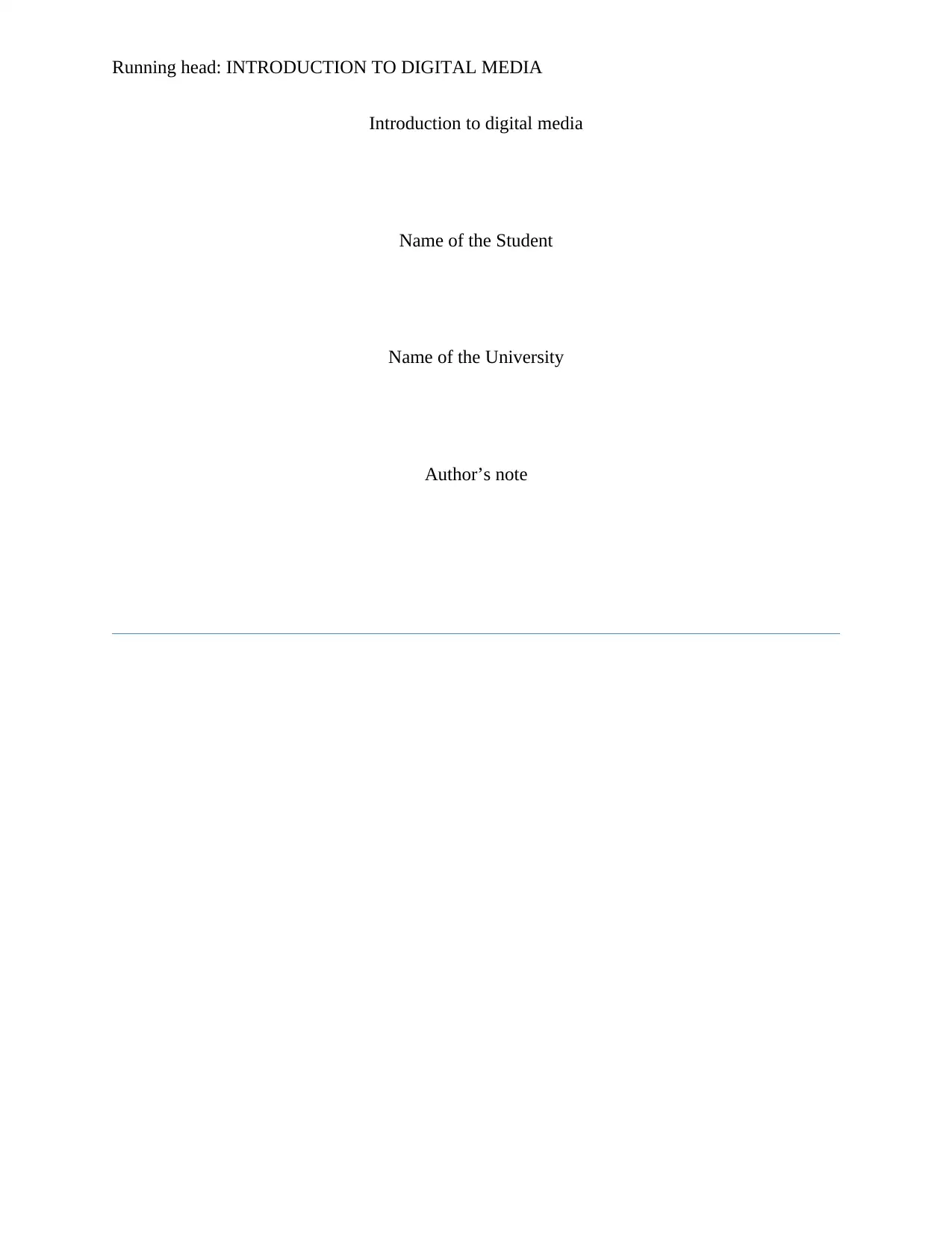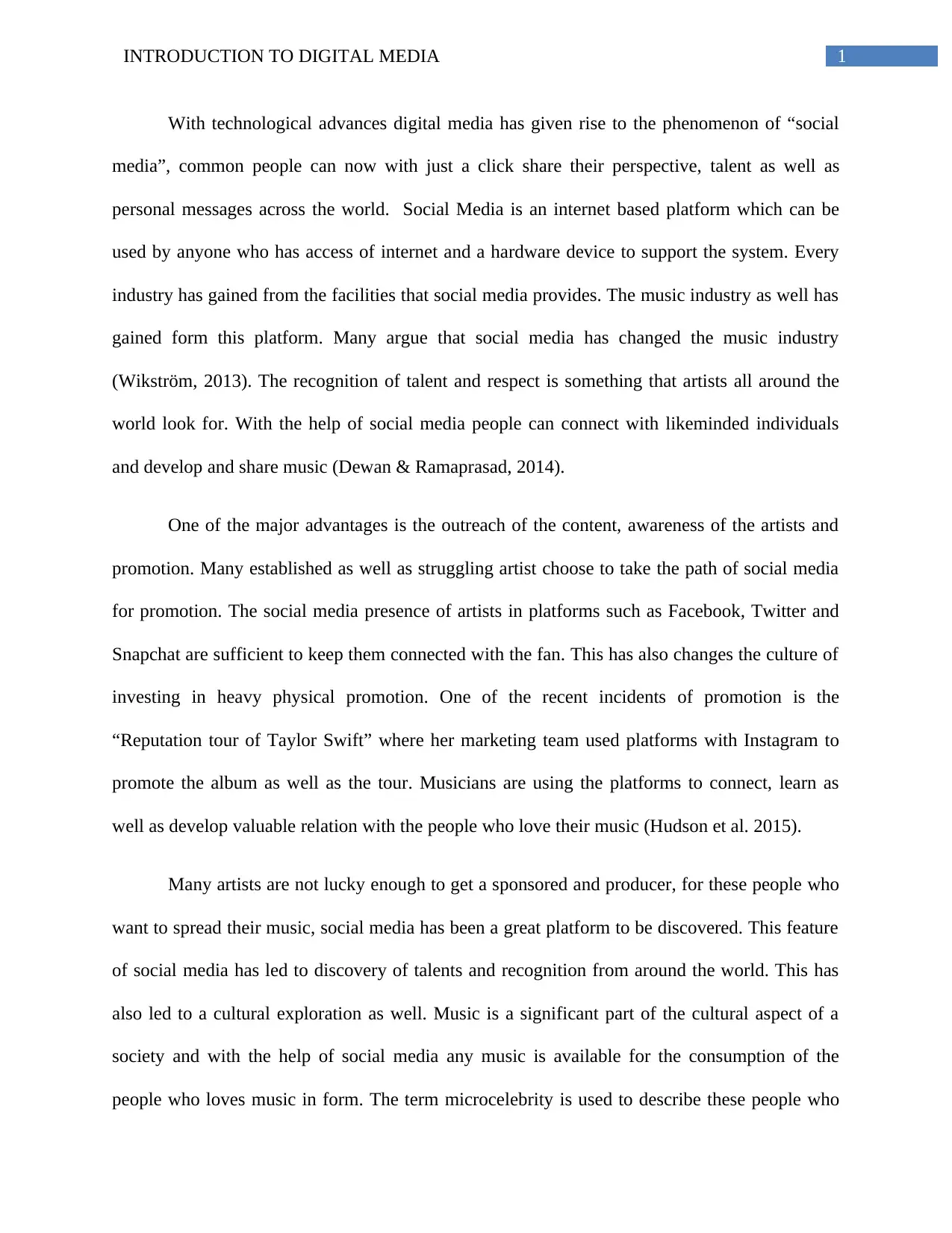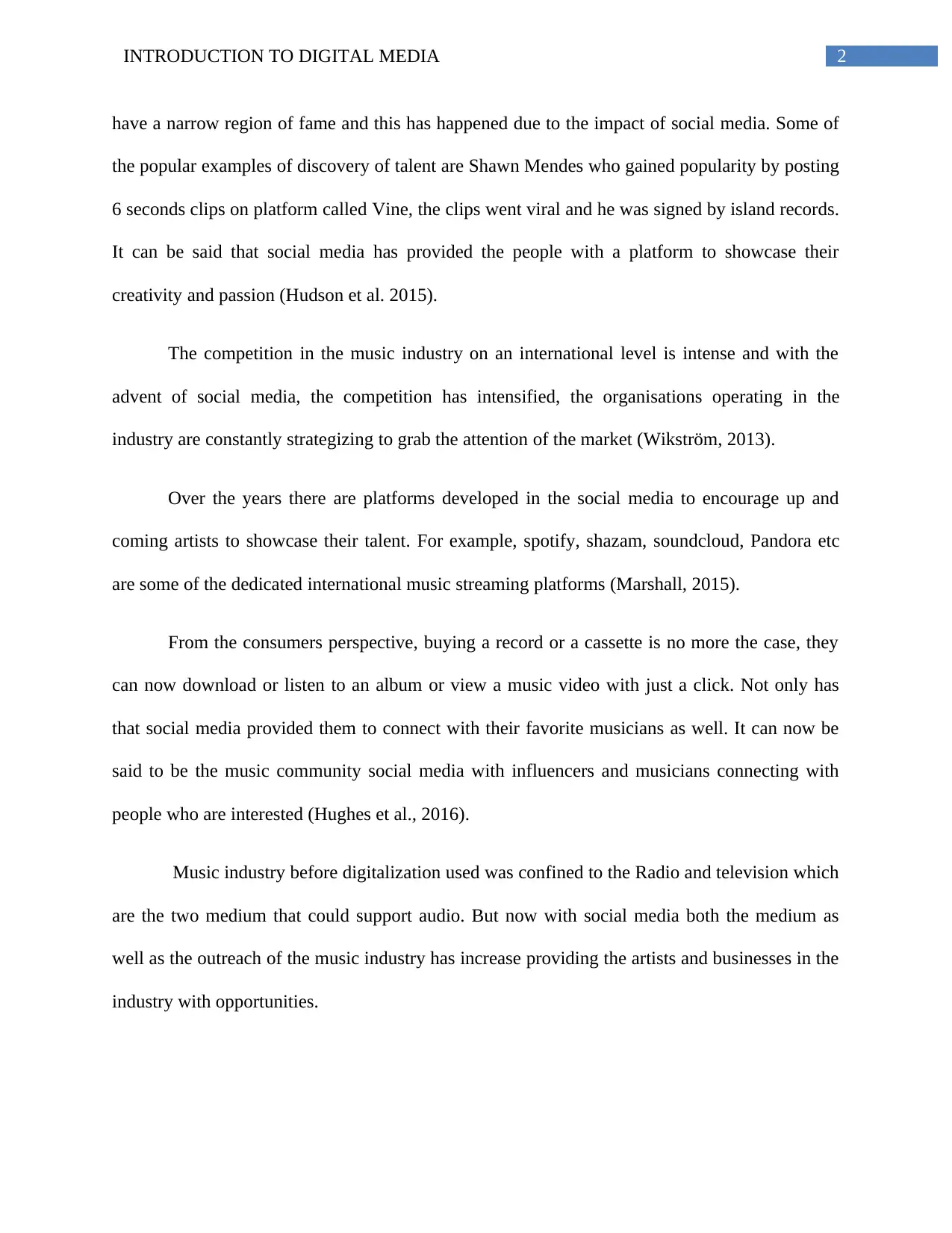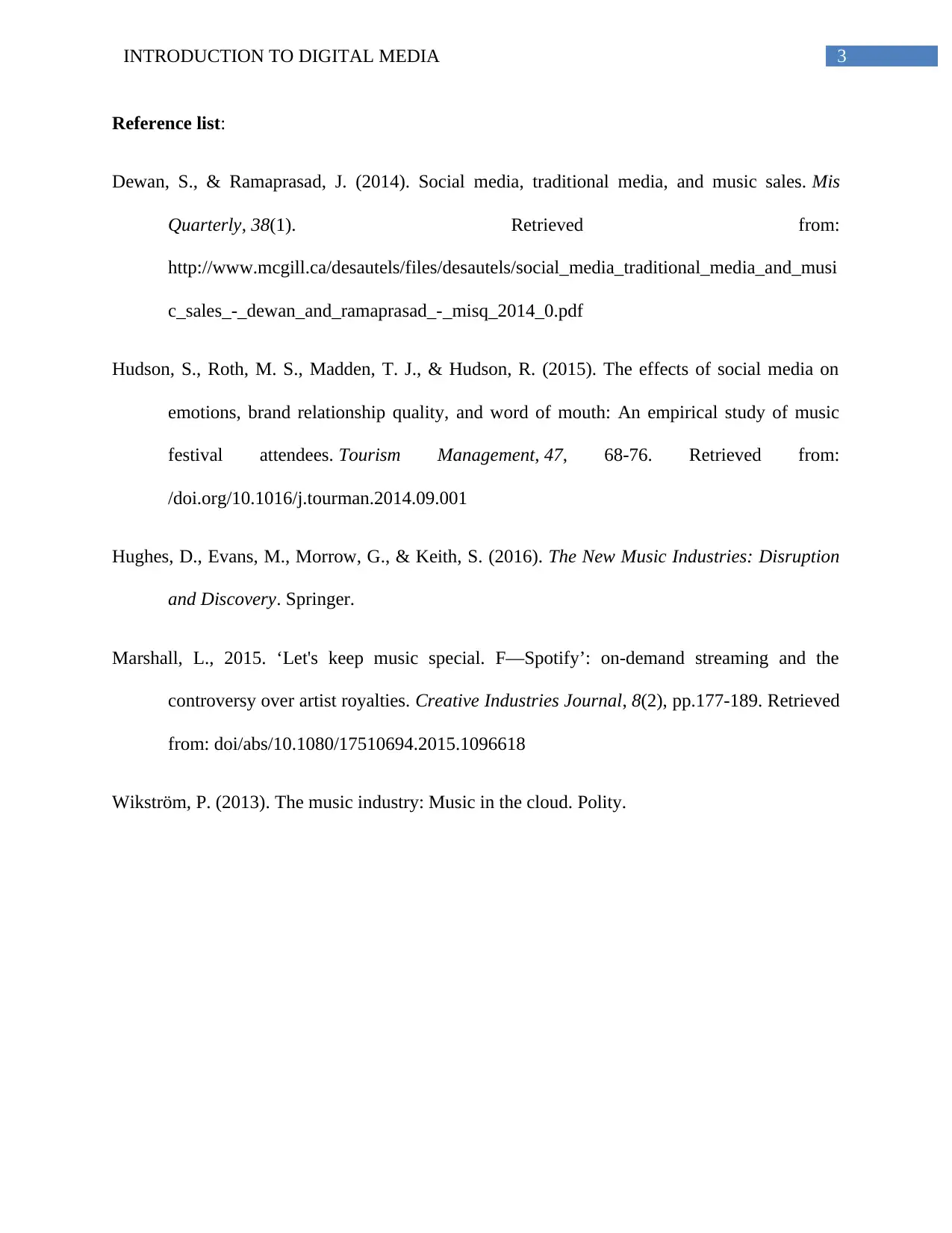Digital Media's Revolutionary Impact on the Music Industry
VerifiedAdded on 2021/09/10
|4
|922
|430
Essay
AI Summary
This essay provides an overview of the significant impact of digital media on the music industry. It explores how social media platforms have revolutionized music promotion, artist discovery, and the way consumers engage with music. The essay discusses the shift from traditional media to online platforms, highlighting the role of streaming services, social media marketing, and the rise of microcelebrities. It examines how artists leverage platforms like Facebook, Twitter, and Instagram to connect with fans, promote their work, and build communities. The essay also touches on the intensification of competition within the music industry and the development of platforms like Spotify and SoundCloud. It concludes by emphasizing the increased accessibility of music and the changing dynamics of the music community in the digital age, including how artists are now able to directly engage with their audience, bypassing traditional gatekeepers.
1 out of 4











![[object Object]](/_next/static/media/star-bottom.7253800d.svg)